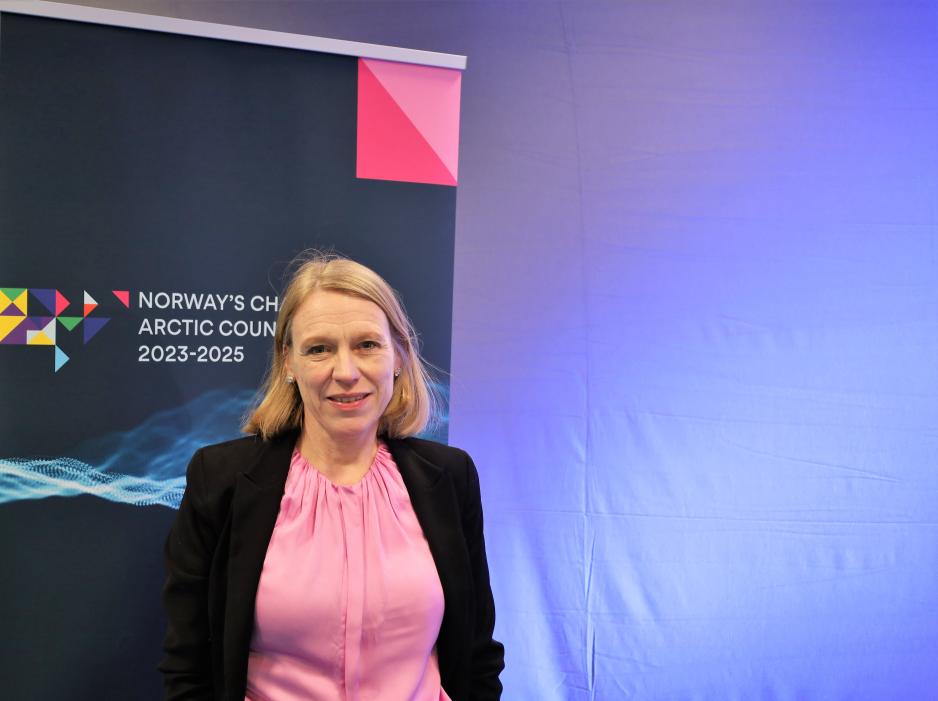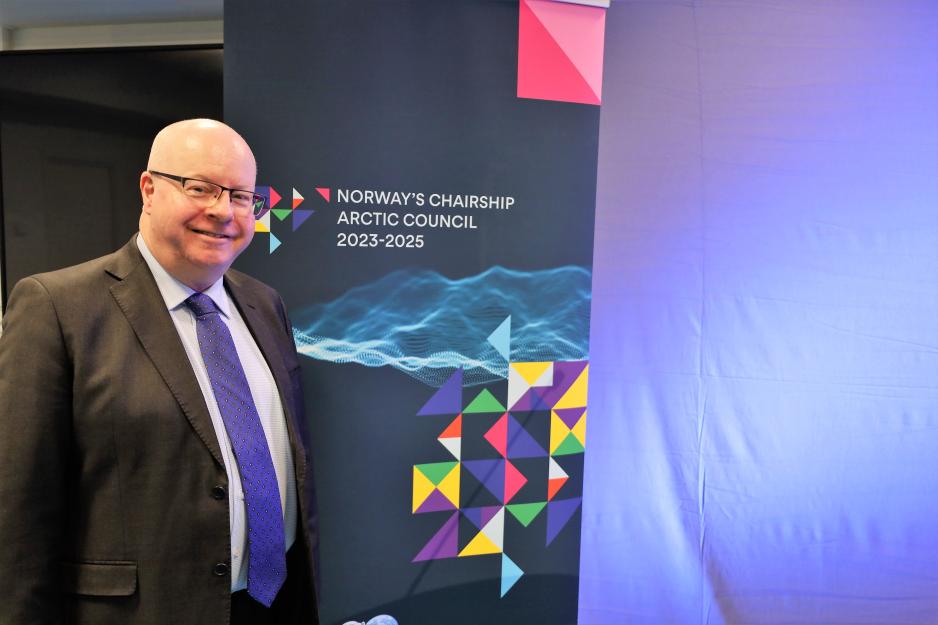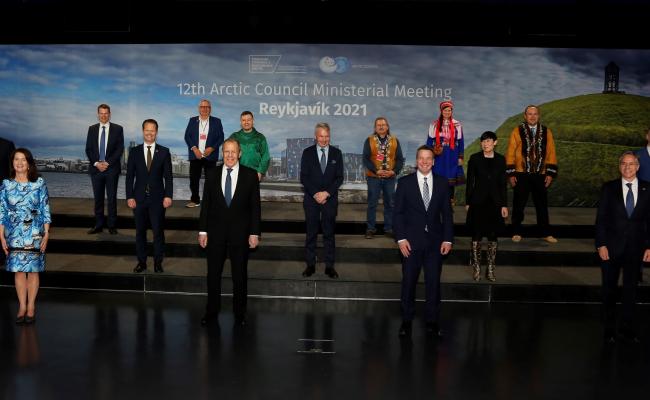Upcoming Arctic Council Chairship: Important to Have Some Cooperation With Russia on Climate

Norwegian MFA Anniken Huitfeldt launched the priorities for Norway’s chairship of the Arctic Council on Tuesday. "We must continue to look towards the long-term challenges and the opportunities in the Arctic," she emphasizes. (Photo: Hilde Bye / High North News)
Tromsø (High North News): Norway's upcoming chairship of the Arctic Council is expected to be one of the council's most important. Despite a demanding international situation, Norway is fighting for the council's survival.
"It is extremely important that we manage to keep going in some way, shape, or form. Although it is not possible to sit by the same table as Russia as before, there are major challenges that we must solve together."
This was pointed out by Norwegian Minister of Foreign Affairs Anniken Huitfeldt (Labor) to High North News when we met her at the Fram Centre in Tromsø, Northern Norway, this week.
As is well known, Norway will take up the baton from Russia in May. This will take place under very special circumstances in the history of the council. Cooperation with Russia in the Arctic Council has been suspended following the country's invasion of Ukraine.
"The Arctic Council's continued work will reflect the political reality. We will still do what we can to ensure that the council can continue as a body where we can address the most pressing and border-crossing challenges we face in the region. Such as the data basis for climate knowledge and the need for sustainable resource management which takes nature, wildlife, and people who live in the Arctic, into account," said MFA Huitfeldt during the launch.
We are facing serious challenges in the Arctic.
A historically significant chairship
The upcoming Norwegian chairship is described by many as the most important in the Arctic Council's history.
"We want the council to survive. We have set some important priorities which are in all of the Arctic countries' best interest," says the MFA and adds:
"We have shared fundamental interests, so there is little power politics in this."
Through four priority topics: the oceans; climate and environment; sustainable economic development; and people in the north, Norway seeks to focus on the council's core tasks. The four thematic priorities reflect long-term Norwegian priorities for the Arctic and for Norway’s Arctic policy, the Norwegian Ministry of Foreign Affairs highlights.

Morten Høglund is Norway's new Arctic ambassador and is representing Norway in the Arctic Council as Senior Arctic Official. (Photo: Hilde Bye / High North News)
Air of gravity
Morten Høglund, Norway's Ambassador for the Arctic and Senior Arctic Official of the Arctic Council, describes the day as a milestone.
"This is a marching order for what we will try to work for in the coming two years. In that sense, there is an air of gravity in this. We are facing serious challenges and heavy issues in the Arctic. Yet, I am positive and motivated," says Høglund to HNN.
The process of taking over the chairship of the Arctic Council has been long and started before Russia's invasion of Ukraine. At the same time, of course, the past year has put its mark on Høglund's work.
"Despite difficulties, we must try. It is important to see what we can do, even in a demanding situation," he points out.
As High North News recently reported, Høglund will participate digitally from the Norwegian side in the upcoming takeover meeting on the 11th of May. The chairship of the Arctic Council is normally transferred during a so-called ministerial meeting in which the MFAs from the Arctic countries participate physically. This year, a ministerial meeting has been impossible to arrange, and the meeting will therefore be more limited than usual.
It is important to see what we can do, even in a demanding situation.
Minister of Climate and Environment Espen Barth Eide during the launch of Norway's program for the chairship of the Arctic Council. (Photo: Hilde Bye / High North News)
A genuine common interest
"Climate and environment, the oceans, people in the north, and sustainable economic development – the key priorities of Norway's chairship – are the things we believe to be important and relevant now," says the Norwegian Minister of Climate and Environment, Espen Barth Eide (Labor), to HNN.
"They are important globally, but also possible to cooperate on – even in the political climate we are in at the moment," he points out.
According to Eide, climate and environment may be the least difficult area to achieve cooperation with Russian actors in.
"There is a genuine common interest here, for example in collecting data in order to make the climate models work. We must have data from several territories to do so, including Russia. The academic and meteorological milieus are very much aware of this. In areas such as Svalbard, Northern Norway, and Northern Russia, we also have concurrent problems with thawing permafrost, among other things. We hope that there may be some room for contact about such issues, even when major political contact is not possible," he explains.
Without Russia, which holds major parts of the Arctic coastline, the cooperation has been amputated. A number of researchers, especially in the field of climate and environment, have warned that we, without Russia, will understand much less about how we can "save the Arctic", states Svein Vigeland Rottem, Senior Researcher at the Fridtjof Nansen Institute.
"Climate change is happening faster in the Arctic than anywhere else on the planet. They represent the largest threat to the vulnerable Arctic natural diversity," said the Minister of Climate and Environment during the launch of the program.
"We are clear that this will not be an easy period. We have to deal with a much more difficult relationship with Russia than we've had since 1996" [when the Arctic Council was established, ed.note]. It is still important to take care of what we have built and maintain it," said Eide.
Also read
This article was originally published in Norwegian and has been translated by Birgitte Annie Molid Martinussen.


